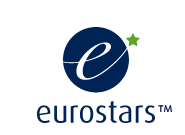

TBAT assists organisations in accessing research and development grant funding across a range of UK and EU schemes and industry sectors.
Can't see a suitable grant funding opportunity right now? Leave the searching to us. Sign up to receive the latest updates from TBAT and your chosen sector.

Key Features
UK registered micro, small or medium sized enterprises can apply for loans for close to market innovative projects with strong commercial potential. They must significantly improve the UK economy and drive societal benefit.
Programme: Innovate UK
Award: Share of up to £25 million

Key Features
The water sector in England and Wales is at risk of falling short of its long-term goals for water efficiency. The Water Efficiency Lab (WEL) is a new challenge-led competition to attract the most innovative solutions to specific water efficiency challenges and unlock progress on water efficient technology, processes and approaches.
Programme: Ofwat
Award: Share of up to £5 million

Key Features
UK registered organisations can apply for a share of up to £33 million for late stage demonstration research and development projects. Projects will support the UK’s transition to zero emission vehicles and a pathway to a net zero automotive industry.
Programme: Innovate UK
Award: Share of upto £33 million

Key Features
Innovate UK will invest up to £5 million in supply chain projects, supporting feasibility studies that explore new ways of making supply chain more resource efficient and resilient.
Programme: Innovate UK
Award: Share of up to £5 million

Key Features
UK registered organisations can apply for a share of up to £33 million for late stage collaborative research and development projects. Your project will support the UK’s transition to zero emission vehicles and a pathway to a net zero automotive industry.
Programme: Innovate UK
Award: Share of up to £33 million

Key Features
UK registered organisations can apply for a share of up to £7.6 million to enable career and growth opportunities in the tech sector. This funding is from the Department for Science, Innovation and Technology (DSIT).
Programme: Innovate UK
Award: Share of up to £7.6 million

Key Features
UK academic institutions and education providers can apply for funding to develop initiatives that build industry ready AI professionals aligned to local skills demand. Funding of £7.8 million is provided by DSIT.
Programme: Innovate UK
Award: Share of up to £7.8 million

Key Features
Eurostars is part of the European Partnership on Innovative SMEs. The partnership is co-funded by the European Union through Horizon Europe.
Programme: Eurostars
Award: Share of up to Euro 360,000

Key Features
UK registered organisations can apply for a share of up to £10 million. The funding is for the development and demonstration of solutions to increase public Electric Vehicle (EV) charging provision for longer journeys on the Strategic Road Network (SRN).
Programme: Innovate UK
Award: Share of up to £10 million

Key Features
Organisations can apply for a share of up to £7 million across the three strands of the competition. This is for energy access in ODA eligible countries in sub-Saharan Africa, South Asia, the Indo Pacific region and Latin America.
Programme: Innovate UK
Award: Share of up to £7 million

Key Features
Organisations can apply for a share of up to £7 million across the three strands of the competition. This is for energy access in ODA eligible countries in sub-Saharan Africa, South Asia, the Indo Pacific region and Latin America.
Programme: Innovate UK
Award: Share of up to £7 million

Key Features
Organisations can apply for a share of up to £7 million across the three strands of the competition. This is for energy access in ODA eligible countries in sub-Saharan Africa, South Asia, the Indo Pacific region and Latin America.
Programme: Innovate UK
Award: Share of up to £7 million

Key Features
UK registered organisations can apply for a share of up to £2.5 million for projects to develop vocational robotics skills courses. This funding is from the Department for Science, Innovation and Technology.
Programme: Innovate UK
Award: Share of up to £2.5 million

Key Features
UK registered organisations can apply for a share of a minimum of £8 million for developing zero emission capable flight in the UK, subject to a sufficient number of high quality applications being received. This funding is from DfT.
Programme: Innovate UK
Award: Share of up to £8 million
Closes: 1st Apr 2026
View Funding Scheme
Key Features
UK registered businesses can apply with CR&D or R&D projects for a share of up to £18.5 million to mature and accelerate the availability of components that include semiconductors or novel technologies ready for integration into Smart Electronic Platforms
Programme: Innovate UK
Award: Share of up to £18.5 million
Closes: 1st Apr 2026
View Funding Scheme
Key Features
Farming, growing or forestry businesses based in England can apply for a share of up to £5 million for on-farm trial and demonstration projects, to improve adoption of new ideas or solutions in the agricultural sector.
Programme: Innovate UK
Award: Share of up to £5 million
Closes: 8th Apr 2026
View Funding Scheme
Key Features
Farming, growing or forestry businesses based in England can apply for a grant of £2,500, to engage an external Project Facilitator to support the development of a Full ADOPT Grant application.
Programme: Innovate UK
Award: Share of up to £2,500
Closes: 8th Apr 2026
View Funding Scheme
Key Features
Organisations can apply for a share of £2 million, inclusive of VAT, to develop and commercialise non‑animal methods for assessing the pre‑clinical pharmacokinetics and cardiovascular safety of new medicines.
Programme: Innovate UK
Award: Share of up to £2 million

Key Features
UK registered organisations can apply for a share of up to £3 million for innovative projects in quantum. This funding is from Innovate UK, part of UK Research and Innovation.
Programme: Innovate UK
Award: Share of up to £3 million
Closes: 15th Apr 2026
View Funding Scheme
Key Features
UK registered organisations can apply for a share of up to £2 million for creating a central convening body to coordinate the robotics adoption hubs. Funding is from the Department for Science, Innovation and Technology (DSIT).
Programme: Innovate UK
Award: Share of up to £2 million
Closes: 15th Apr 2026
View Funding Scheme
Key Features
UK registered organisations can apply for a share of up to £38 million for creating one-stop shops to help end-users adopt robotics and autonomous systems with expert guidance. Funding is from the Department for Science, Innovation and Technology.
Programme: Innovate UK
Award: Share of up to £38 million
Closes: 15th Apr 2026
View Funding Scheme
Key Features
Organisations can apply for a share of £20 million across two competitions. Projects will advance development of pharmaceutical, digital and MedTech tools to improve treatment recovery and prevention of harm and deaths from drug and alcohol addictions.
Programme: Innovate UK
Award: Share of up to £20 million
Closes: 6th May 2026
View Funding Scheme
Key Features
Organisations can apply for a share of £20 million, inclusive of VAT. Projects will advance development of pharmaceutical, digital and MedTech tools to improve treatment, recovery and prevention of harm and deaths for drug and alcohol addictions.
Programme: Innovate UK
Award: Share of up to £20 million
Closes: 6th May 2026
View Funding Scheme
Key Features
UK registered government research organisations can apply for grants from £50,000 up to £250,000 to move viable public sector knowledge assets towards commercial readiness. This funding is provided by the Government Office for Technology Transfer (GOTT).
Programme: Innovate UK
Award: Share of up to £250,000
Closes: 7th May 2026
View Funding Scheme
Key Features
This UK Defence Innovation themed competition is looking for innovative proposals that are cost competitive, designed for manufacture, and can be scaled in an approximate twelve-month timeframe.
Programme: UK Defence Innovation
Award: Share of up to £1 million
Closes: 12th May 2026
View Funding Scheme
Key Features
UK registered organisations can apply for a share of up to £150 million to create scale up manufacturing facilities for zero emission vehicle technologies.
Programme: Innovate UK
Award: Share of up to £150 million
Closes: 17th Sep 2026
View Funding Scheme
Key Features
EIT Urban Mobility invites innovators from across Europe to submit a proposal to its Strategic Innovation Open Call, designed to accelerate the deployment of impactful solutions that address the most pressing challenges in urban mobility.
Programme: EIT Urban Mobility
Award: EUR 60 million
Closes: 31st Dec 2028
View Funding SchemeAssists organisations in accessing research and development grant funding across a range of UK and EU schemes and industry sectors.
Get In Touch